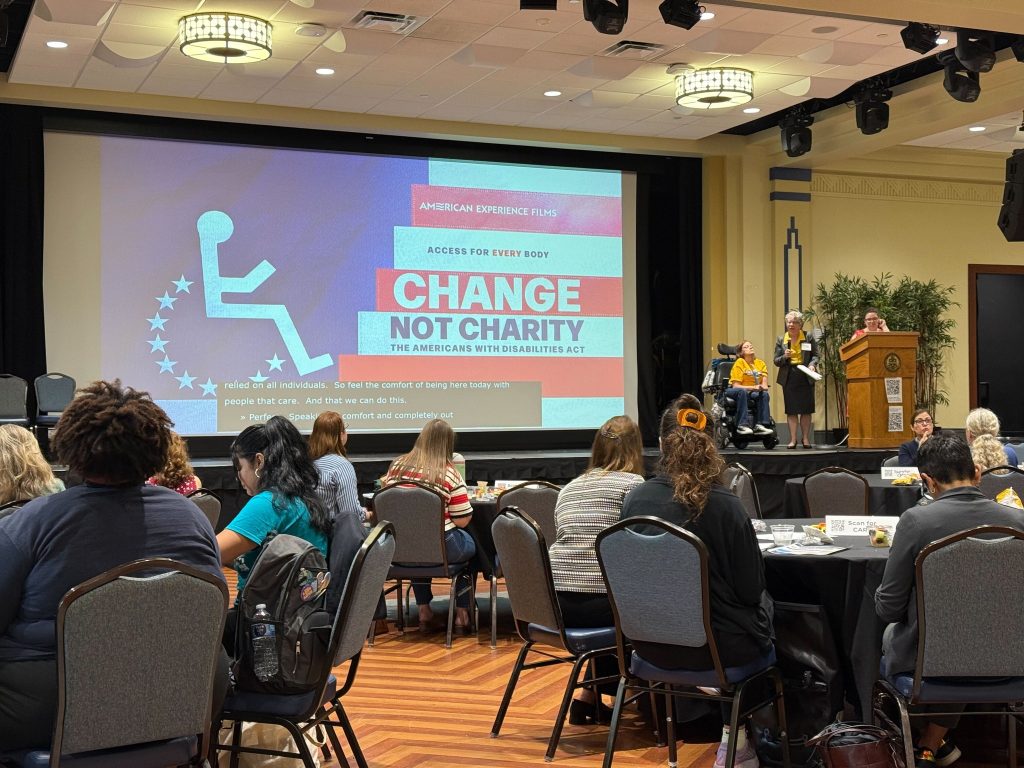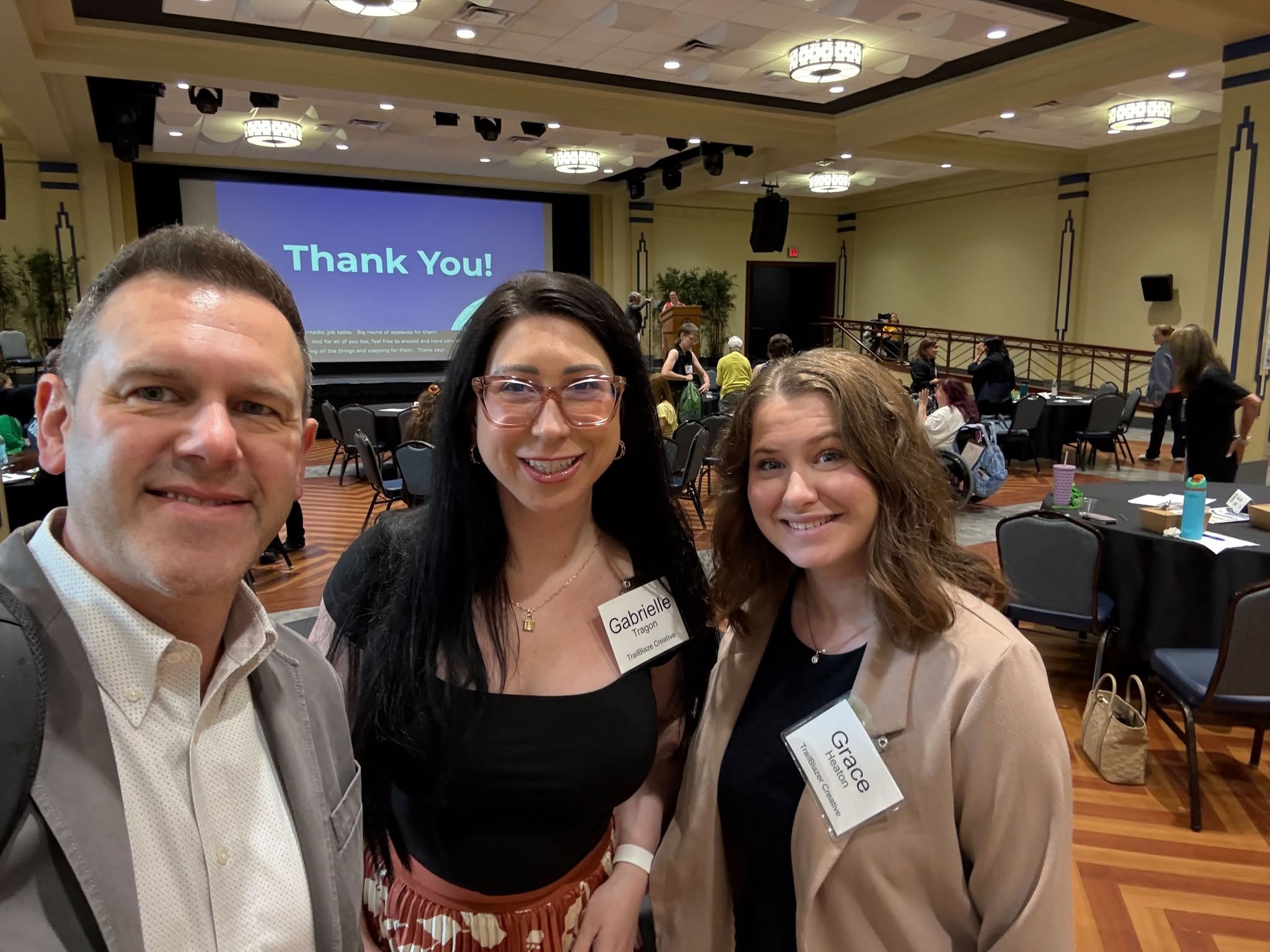This past Wednesday, I had the privilege of attending a screening of Change, Not Charity: The Americans with Disabilities Act with my colleagues Tim and Gabrielle. Hosted by the FISA Foundation, this event offered a powerful reminder that disability rights are not a special interest – they’re civil rights.
As someone early in my career, I often find myself bouncing between press releases and media lists, planning events and pitching stories that highlight the work of our nonprofit and small business clients. Many of these nonprofit clients are service providers for people with developmental disabilities. But sitting in that room, listening to the panelists – Josie Badger, Alisa Grishman, and Hetal Dhagat – and watching this film, I was reminded that good communication isn’t just about visibility. It’s about power, purpose, and knowing when to step back so others can lead with their lived experience – passing the mic.
The film itself, produced by PBS’s American Experience, traces the radical, often-overlooked history of the disability rights movement in America. It doesn’t just chronicle the passage of the Americans with Disabilities Act – it shines a light on the decades of grassroots activism, civil disobedience, and organizing that led up to it. Change, Not Charity challenges viewers to understand disability not through a lens of pity or charity, but as a call to structural justice. FISA Foundation’s decision to host this screening aligns perfectly with its mission: to advance equity, safety, and opportunity for women, girls, and people with disabilities across southwestern Pennsylvania. Their convening power helped spark meaningful conversation – and, hopefully, action.

During the discussion, Kristy Trautmann of FISA encouraged attendees to identify the many forms of advocacy shown in the film: from direct action and protest, to lobbying legislators, to community education and grassroots organizing. These strategies weren’t just historical footnotes – they were blueprints for how change is still made today. One theme that resonated deeply with me was the role of disruption. Throughout the film, activists disrupted narratives, systems, and expectations in order to be heard. At TrailBlaze, we often talk about strategic communication, but this was a reminder that sometimes the most effective strategy is shaking the table.
Some of the most powerful messages I took away:
- Use the mic when you have it – and know when to hand it to someone else.
- The fight for civil rights is a relay race – this is the leg to support individuals with disabilities.
- Be audacious about what you believe is possible.
Panelists also gave us tangible action steps – join Pennsylvania Health Access Network (PHAN) to advocate for Medicaid, support Transit for All PA and Pittsburghers for Public Transit, and get involved in inclusive education efforts like 412 Justice and PA WInS. There are not abstract policy issues; they affect the people we serve and the systems we help communicate about every day.
This event wasn’t just about reflection. It was about responsibility. In media relations, we talk a lot about “amplifying voices.” This experience reminded me that amplification is only meaningful when it’s backed by access, intention, and justice.
As someone whose day-to-day work includes writing press releases, organizing events, and helping our clients tell their stories, this screening reinforced how vital it is to approach that work with intentionality. It’s not enough to secure coverage – we have to ask whose stories are being told, how they’re being framed, and who benefits from the narrative. Communication can either reinforce power imbalances or help shift them. At TrailBlaze, I’m learning that ethical storytelling isn’t just a strategy – it’s a responsibility.
I left this event feeling grateful to work for an agency that partners with organizations fighting for equity – and more committed than ever to making sure the stories we tell aren’t just polished, but purposeful.


